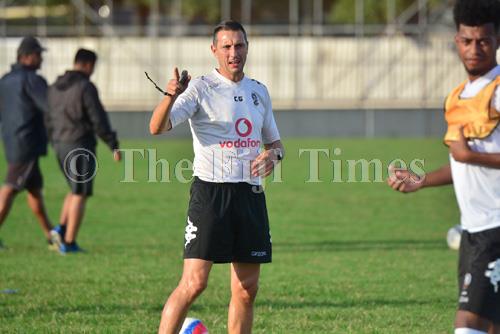AUCKLAND,27 JULY 2021 (ABC)–The former coach of the Fijian men’s soccer team, Christophe Gamel, has always said that in his opinion a women’s team from the Pacific would qualify for a FIFA World Cup long before the men.
And now the Oceania Football Confederation is out to deliver on that prediction, with a new strategy targeting the women’s game right across the region, and already hailed by FIFA President Gianni Infantino as historic.
The primary objective of OFC’s inaugural women’s football strategy, All In, is to the lay the foundations for achieving its ambitious goal to qualify two teams for the FIFA Women’s World Cup 2027.
At the heart of it will be five pillars: visibility, education, performance, culture, and participation.
“We want to look at doing research to fully understand the barriers that girls and women in the Pacific face when it comes to playing football, working in football and retaining women in football as well,” Emma Evans, OFC’s Women’s Football Manager told Pacific Beat.
All In is also aimed at closing the performance gap between New Zealand and the Pacific island teams.
“You only need to look at teams like Papa New Guinea that have had so much success at a Pacific level, to realize that with the right structures and financial support in place, they could do really, really great things.”
A team of football ambassadors will help spread OFC’s message, including Samoan international striker, Torijan Lyne-Lewis.
“It’s an honour, and I just want to do the best I can to grow the sport and assist in any way as I can,” she told Pacific Beat.
“I’m currently coaching and I hope to continue to do that to really get behind OFC and get more girls and women into the game.”
And while the All In target is two teams at the 2027 FIFA World Cup, Emma Evans says the 2023 event that will be co-hosted by New Zealand and Australia is also on the radar.
“I would love to see another team there. And I think we’ve got a really good chance with the amount of national leagues and domestic football that’re happening currently.”
Ironically the rise of the domestic game is the result of the COVID-19 pandemic, because with international matches at a standstill in the Pacific, money that would normally be spent on travel is being diverted into local island competitions.



